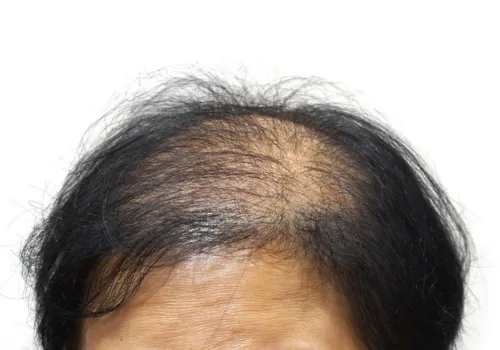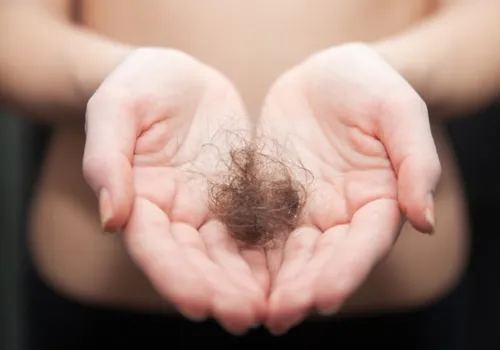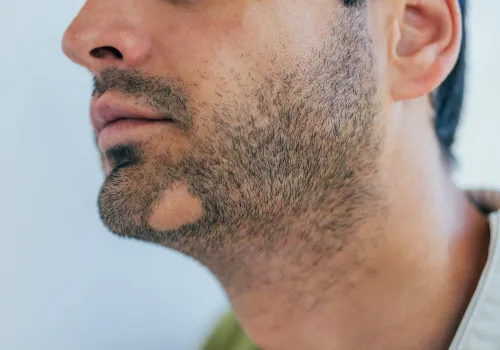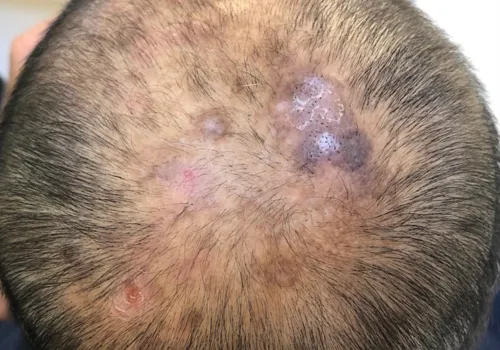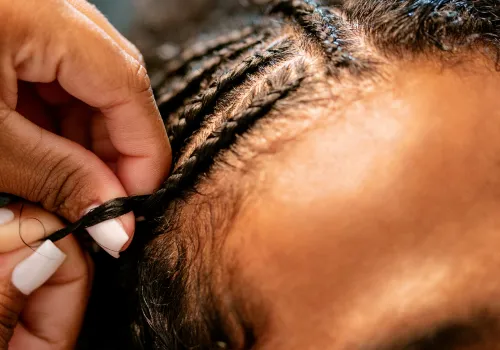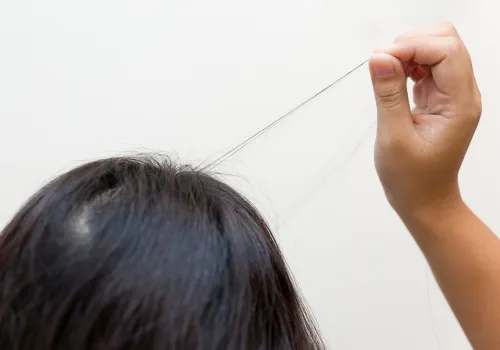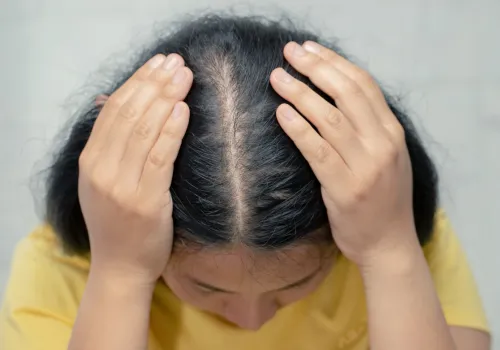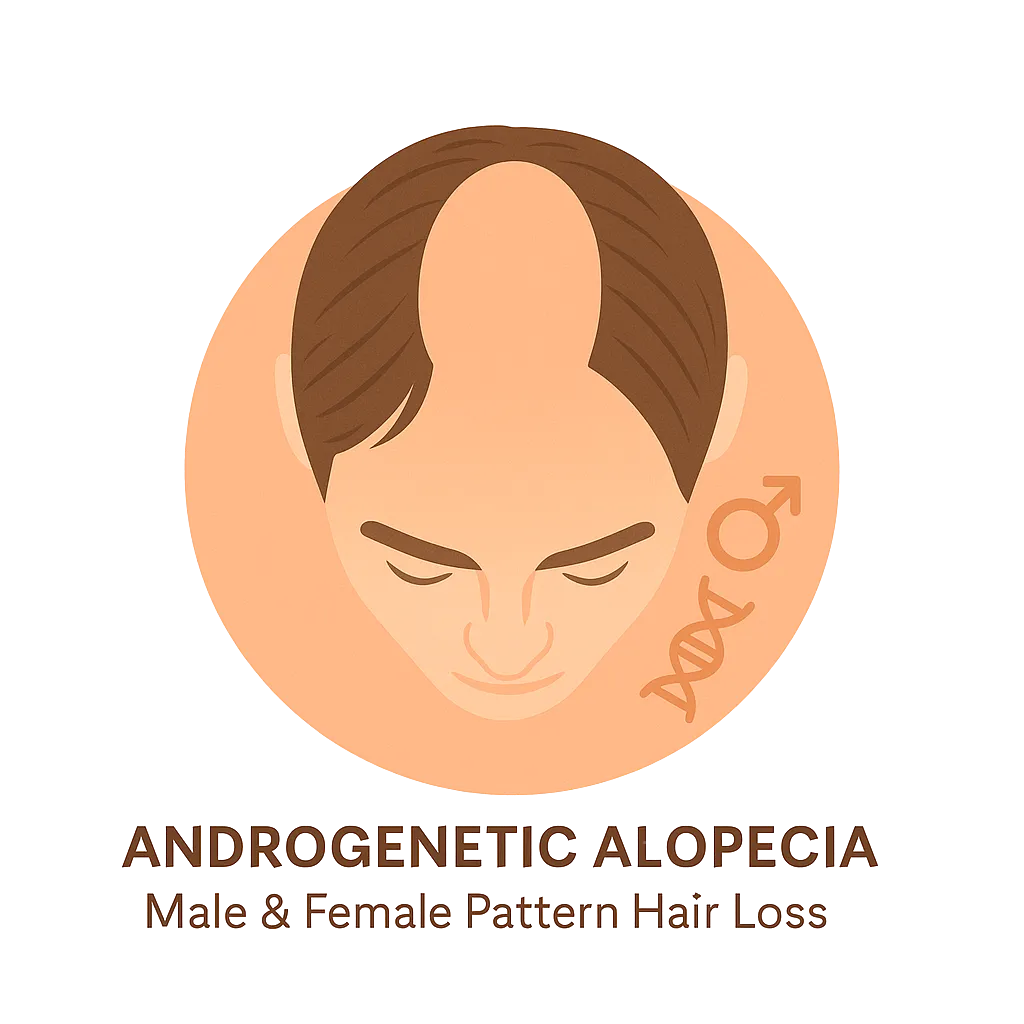
Androgenetic Alopecia (AGA)
(Male & Female Pattern Hair Loss)
Commonly known as Male or Female Pattern Hair Loss, this form of hair thinning is progressive and hereditary. It typically follows a recognizable pattern and is influenced by hormones and genetics.
Scroll to Learn More
This common condition affects millions of men and women. Here's what you need to know about its causes, symptoms, and treatment options.
What Is It Androgenetic Alopecia (AGA)?
Androgenetic Alopecia (AGA), also known as male or female pattern hair loss, is the most common form of progressive hair thinning. It is primarily driven by genetic predisposition and hormonal activity—specifically the sensitivity of hair follicles to androgens such as dihydrotestosterone (DHT).
In men, AGA often starts with a receding hairline and thinning at the crown. In women, it presents as diffuse thinning across the top of the scalp while typically maintaining the frontal hairline. While not medically dangerous, AGA can have a profound impact on confidence and self-image.
Common Causes & Contributing Factors
Genetics – Family history increases the likelihood of inherited follicle sensitivity to DHT
Hormonal changes – Elevated or imbalanced androgens such as testosterone and DHT
Aging – Hair density and strength naturally decrease with age
PCOS in women – Polycystic ovary syndrome often elevates androgen levels
Poor circulation & inflammation – Can accelerate miniaturization of hair follicles
Stress – May exacerbate progression in those already predisposed
Don't worry, we can help!
How It’s Diagnosed
A certified trichologist or medical professional typically begins with a detailed consultation and health timeline.
Diagnosis includes:
Scalp examination under magnification
Functional blood chemistry analysis to assess hormones, nutrients, and inflammation
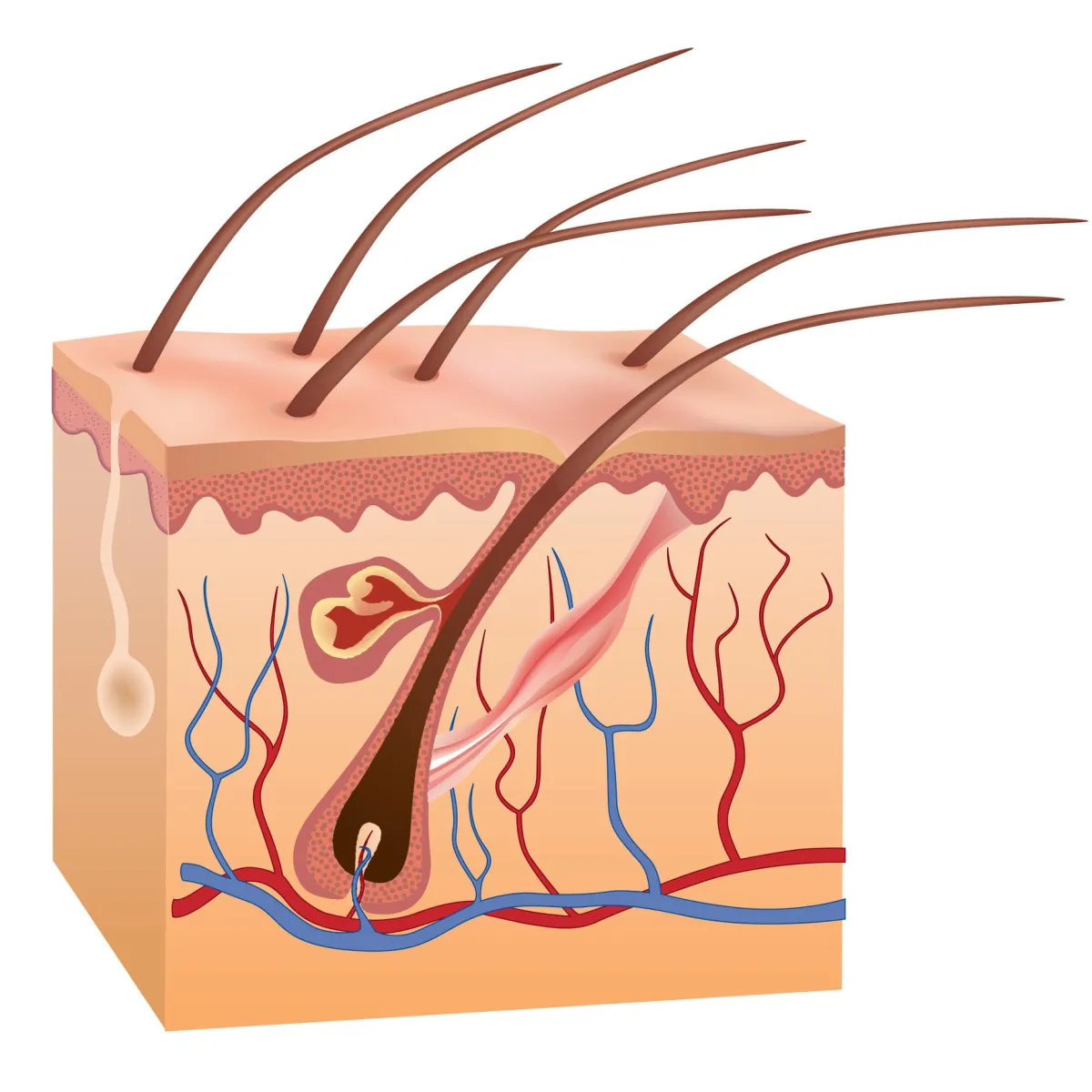
Symptoms to Watch For
Gradual thinning on the crown or temples (men)
Widening part or diffuse thinning on top of the scalp (women)
Miniaturized, finer hairs in affected areas
Scalp more visible in bright lighting
No significant itching or inflammation (unlike other conditions)
Treatment & Management Options
Lifestyle Recommendations
Reduce intake of high-glycemic foods and processed oils
Improve sleep and stress management (yoga, adaptogens, breathwork)
Consider tracking androgens with a qualified practitioner
Topical / Clinical Treatments
DHT blockers (saw palmetto, pumpkin seed oil, green tea extract)
Microneedling or PRP (platelet-rich plasma) to stimulate follicle activity
Minoxidil-based or herbal serums targeting miniaturized follicles
Scalp Therapies & Supplements
Ph-balancing scalp detox (e.g., Iridium Green Shampoo)
Cell Food Drops for circulation and scalp nourishment
Functional supplements: zinc, biotin, vitamin D3, omega-3s
Low-level laser therapy (LLLT) or red light stimulation


Not ready to book a session just yet?
That’s okay—your curiosity still matters! If you have a question about hair or scalp health but aren’t ready to move forward with a consultation, feel free to send it our way. We may feature it in an upcoming blog post or use it as a topic in a future live session—because chances are, someone else is wondering the same thing too.
Androgenetic Alopecia Blog
We regularly share content on this topic through both video and written posts. Use the search bar to find answers to the specific questions you're looking for.
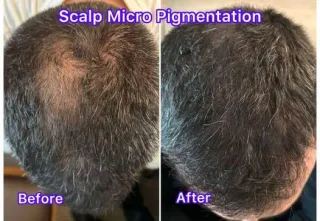
Scalp Micropigmentation (SMP)
Scalp Micropigmentation (SMP) ...more
Androgenetic Alopecia ,Bissan
May 22, 2025•5 min read

General Hair Loss Treatments
General Hair Loss Treatments ...more
Trichology ,kerrijarrett
May 22, 2025•1 min read
Real Stories. Real Experiences.
You're Not Alone — And You Never Have To Be
Hair loss, especially from Telogen Effluvium, can feel overwhelming and isolating — but it doesn’t have to be. We built this community so that no one has to walk this path in silence.
Here, you’ll find real people with real experiences, just like yours. Their stories are shared to offer hope, perspective, and a reminder:
healing isn’t linear, but you don’t have to go through it alone.
You’re seen. You’re supported. And we’re in this together.
"I thought it was just stress, but a trichologist helped me uncover my hormonal imbalance. With the right support, my hair is fuller and I feel like myself again."
– Anonymous, Age 34
Want to Learn more on Androgenetic Alopecia
Dive deeper into the causes, signs, and solutions for androgenetic alopecia with our expert-led video content on The Hair Wire. Whether you're experiencing hereditary hair thinning or supporting a loved one through their hair loss journey, our videos break down the science, treatment options, and real-world tips you need to feel informed and empowered.
🎥 Check out our videos on The Hair Wire and take the next step toward understanding your hair health.
CLICK BELOW TO WATCH FIRST!
Androgenetic Alopecia FAQ
Can hair grow back after years of Androgenetic Alopecia?
While early intervention offers the best outcomes, some regrowth may be possible even after years—especially with consistent stimulation therapies like microneedling or PRP. However, severely miniaturized or dormant follicles are more challenging to reactivate.
Is AGA linked to other health conditions like insulin resistance or thyroid issues?
Yes. Research suggests that AGA, especially in women, can be linked to metabolic conditions such as insulin resistance, PCOS, and thyroid dysfunction, which all influence hormone balance and inflammation.
Does frequent hair washing or brushing worsen AGA?
No, washing or brushing does not cause or worsen AGA. However, aggressive handling can weaken already fragile hair strands. A gentle scalp care routine supports follicle health without triggering loss.
Does frequent hair washing or brushing worsen AGA?
Telogen effluvium is a sudden, diffuse shedding triggered by stress, illness, or medication, and it’s usually reversible. AGA is gradual and patterned, with miniaturized follicles and a genetic/hormonal cause.
Can hairstyles or hats cause androgenetic alopecia?
Tight hairstyles may cause traction alopecia, but not AGA. Wearing hats does not contribute to AGA. The root cause lies in follicle sensitivity to androgens, not external pressure.
Do over-the-counter DHT blockers actually work?
Some natural DHT blockers like saw palmetto and pumpkin seed oil show promise in mild to moderate cases. However, effectiveness varies, and results typically require consistent, long-term use and professional guidance.
Can stress alone trigger AGA in someone without a family history?
While stress may accelerate AGA progression, it is unlikely to initiate AGA without a genetic predisposition. However, chronic stress can disrupt hormone balance and may contribute to other forms of hair loss.
Are there gender-specific treatment options for AGA?
Yes. While treatments like minoxidil and laser therapy are used by both genders, women often require hormone-balancing approaches, especially if PCOS or estrogen dominance is involved. Men may explore 5-alpha reductase inhibitors under medical supervision.
Are You a Hair & Scalp Professional? Join the Faculty of Trichology
Whether you're already an expert, just getting started, or looking to deepen your specialty—we’ve got something for you.
The Faculty of Trichology is where professionals come to elevate their skills, build their credibility, and connect with a network that takes hair and scalp health seriously.


We’re more than hair. We’re a community, an education platform and a movement.
Our mission is to raise the standard — reigniting the heart of this industry with integrity, purpose, and connection. We’re also committed to bridging the gap between cosmetology, dermatology, and general practice, creating a more collaborative and informed approach to hair and scalp health.
ABOUT
The Hair Wire is a trusted resource created by trichologists, for anyone seeking clarity around hair and scalp health. With clinically backed information, we simplify complex hair loss conditions and offer professional insight, education, and solutions—one strand at a time.
DISCLAIMER
The content on The Hair Wire is intended for educational and informational purposes only. It is not a substitute for medical advice, diagnosis, or treatment. While our material is guided by professional experience and clinical trichology, we encourage individuals to consult with their own healthcare or wellness providers when making personal health decisions. The Hair Wire offers professional insights, not medical directives.
PATRON ACCESS
PRO' ACCESS
© Copyright 2025. The Hair Wire / Facutly of Trichology. All rights reserved.
